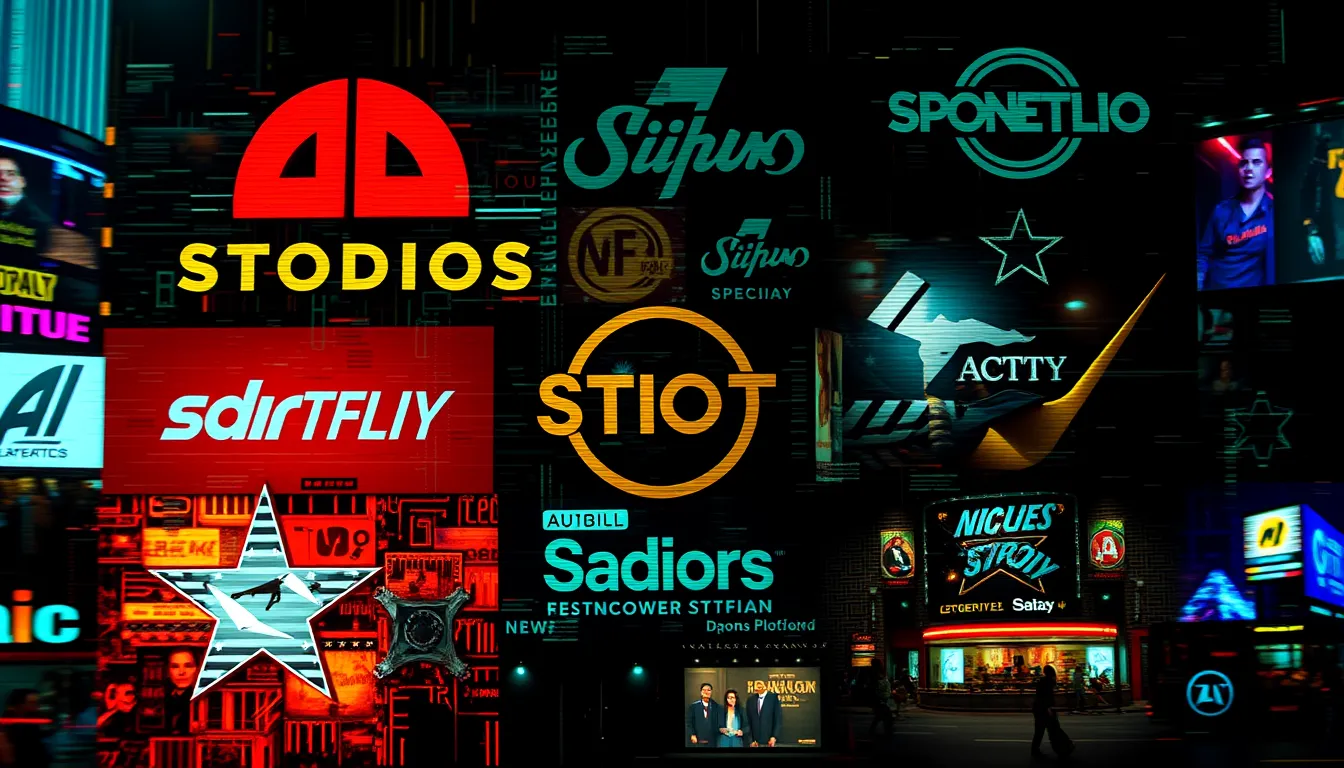Now Reading: YouTube AI Content: Fake Trailers & Policy Reforms
-
01
YouTube AI Content: Fake Trailers & Policy Reforms
YouTube AI Content: Fake Trailers & Policy Reforms

YouTube AI Content: Fake Trailers & Policy Reforms
The digital landscape is undergoing a revolutionary transformation as AI-generated content on YouTube reshapes how audiences engage with media. This surge in content, particularly through the creation of fake movie trailers, has ignited spirited debates throughout the entertainment and technology sectors. In this comprehensive analysis, we explore the evolution of content production, the impact of AI on creative expression, YouTube’s adaptive policy reforms, and an unexpected benefit: the boost in studio revenue. By examining these trends, we seek to understand how artificial intelligence is challenging traditional paradigms and simultaneously unlocking new opportunities within the digital ecosystem.
The Rise of AI-Generated Content on YouTube
Artificial Intelligence is no longer confined to academic research labs or high-tech industries; it has firmly taken root in the realm of content creation. Platforms like YouTube are now brimming with videos that are entirely generated by sophisticated algorithms. At the core of this shift is the ability of machine learning models to analyze vast datasets and mimic creative styles with impressive fidelity. By leveraging deep learning techniques, content creators—both professional and hobbyist—can now produce videos that replicate the aesthetics and narrative styles of popular media with minimal human intervention.
This technological advancement comes with a mixed bag of excitement and concern. On one hand, the automation of video production can lead to rapid content generation, innovative storytelling methods, and even cost-effective marketing strategies. On the other, it fuels debates about originality, ethical content practices, and the potential erosion of creative craftsmanship. The key focus remains on maintaining a balance between technological prowess and creative authenticity.
Fake Movie Trailers: A New Trend
One of the most compelling yet controversial manifestations of this new era is the proliferation of fake movie trailers. These are not merely poor imitations; they are carefully crafted pieces designed to stimulate viewer interest and evoke nostalgia. Using advanced AI tools, creators can produce trailers that echo the signature style of blockbuster films, complete with familiar visual cues and dramatic narratives. The process involves several sophisticated steps:
- Advanced AI algorithms analyze and learn from thousands of movie trailers to understand key visual and audio motifs.
- Machine learning models then replicate these elements, generating sequences that closely resemble authentic movie promotions.
- Post-production tools further enhance these outputs, embedding subtle details that captivate audiences.
Despite their artistic appeal, fake movie trailers raise critical discussions about the thin line between homage and deception. The visual mimicry can sometimes blur the distinction between genuine promotional material and content intended for mere amusement or experimental expression. Furthermore, unauthorized use of intellectual property elements often prompts discussions on legal boundaries and ethical content creation.
YouTube Content Policies and Monetization Practices
In response to the surge of AI-generated productions, YouTube has been compelled to update its content policies to better address the unique challenges presented by this new medium. The platform is actively striving to strike a balance between fostering innovation and ensuring that the quality of content remains uncompromised. Several key changes have been implemented:
- Enhanced Review Procedures: YouTube has established more rigorous review processes to monitor the influx of AI-generated content. This ensures that misleading or substandard material is flagged and managed effectively.
- Stricter Monetization Guidelines: Recognizing the financial stakes, the platform now enforces stricter guidelines to ensure that only content meeting specific quality and originality benchmarks is monetized. This move aims to safeguard the interests of established creators while filtering out low-quality productions.
- Policy Adaptation: As AI continues to evolve, YouTube’s policies are also in a state of constant refinement. Regular updates and transparent communication with the community have become a hallmark of YouTube’s strategy to tackle the challenges posed by the rapid technological changes in content production.
These policy reforms are not only about quality control but also about protecting the integrity of the digital ecosystem. They ensure that while innovation is celebrated, there remains a robust framework governing the nature and impact of the content that circulates on one of the world’s most influential media platforms.
Boosting Studio Revenue: The Financial Impact of AI-Generated Fake Trailers
Contrary to some expectations, the rise of AI-generated fake movie trailers has brought surprising financial benefits to the traditional film industry. The phenomenon of AI crafted trailers is encapsulated in discussions centered around the long-tail keyword focus, “how AI generated fake trailers boost studio revenue.” Detailed industry analyses reveal several factors contributing to this unexpected impact:
- Audience Engagement: Fake trailers, often imbued with elements reminiscent of well-known films, capture the audience’s attention by triggering a sense of familiarity. This engagement often translates into higher view counts and increased interest in the associated studios or franchises.
- Monetization Efficiency: Even when creative input originates from AI, monetization practices favor content that meets established popularity benchmarks. Studios are thus able to secure additional revenue streams based on the heightened engagement levels generated by these trailers.
- Strategic Brand Positioning: The reimagining of traditional trailers using AI not only amplifies studio revenue but also acts as a modern promotional tool. By showcasing innovative uses of technology in content creation, studios can position themselves as forward-thinking leaders in an industry that is increasingly defined by digital transformation.
- Competitive Advantage: With established brands benefitting from AI-enabled content, there is a noticeable shift wherein blockbuster studios gain a financial edge. This trend often challenges independent creators who might not have access to similar sophisticated tools, thereby influencing market dynamics and revenue distribution across the board.
Ethical Considerations and Industry Debates
The rapid expansion of AI in content creation has spurred a host of ethical debates, particularly concerning fair compensation, creative originality, and market competition. As studios leverage AI to repackage familiar themes and visuals, several moral concerns merit attention:
- Originality and Authorship: When an AI generates content that closely mirrors existing works, questions arise about the true source of creativity. Who is the original author when the work is a product of machine learning and algorithmic adjustments?
- Intellectual Property Rights: The fine line between inspiration and imitation becomes blurred with AI technology. Instances where machine-generated content borrows extensively from copyrighted material often invite legal scrutiny and calls for more definitive regulatory frameworks.
- Impact on Independent Creators: Perhaps the most pressing concern is the potential displacement of independent creators. As large studios harness AI to maximize revenue with minimal creative effort, emerging talents may find themselves marginalized by a market dominated by algorithmically powered productions.
Industry experts advocate for clear guidelines to ensure that technological advances do not undermine creative diversity. There is a growing consensus that regulators, platforms, and content creators need to collaboratively develop a framework that upholds ethical standards while encouraging technological innovation. This includes establishing clear criteria for originality, fair compensation models, and transparency in the use of AI in content production. Such measures would not only protect creative rights but also foster an equitable environment where innovation does not come at the expense of artistic integrity.
In-Depth Analysis: The Broader Impact of AI on Digital Content
Beyond the immediate effects on movie trailers and studio revenues, the impact of AI-generated content on YouTube represents a broader shift in digital media production and distribution. The integration of AI into creative processes has wide-ranging implications:
- Transformation in Content Production: Traditional methods of video production are being reimagined through AI integration. Techniques that once required months of labor can now be executed within days, allowing content creators to experiment with styles and formats more freely.
- Democratization of High-Level Production: Advanced AI tools have democratized the creation of high-quality media. With lower barriers to entry, independent creators are empowered to produce content that rivals professionally produced material in terms of visual and narrative quality.
- Changing Viewer Expectations: As audiences become accustomed to AI-generated content, their expectations evolve. This adaptive shift challenges creators to continuously innovate, ensuring that content remains engaging and authentic despite the increasing reliance on automated production methods.
- Future Trends and Industry Growth: Looking ahead, AI is poised to further influence digital marketing, entertainment, and interactive media. Companies across sectors are investing heavily in AI research, anticipating that the next wave of innovations will deeply integrate AI into every facet of media consumption.
Conclusion: Navigating the AI Transformation on YouTube
As artificial intelligence continues to redefine the creative landscape, its role on platforms like YouTube remains both transformative and contentious. The proliferation of AI-generated fake trailers is emblematic of broader technological trends that merge automation with artistry. Studio revenues may enjoy unexpected benefits, but the challenge lies in addressing the ethical and practical implications of such technological advancements.
The evolving policies on YouTube reflect an ongoing attempt to reconcile innovation with responsibility. By instituting stricter content guidelines and monetization rules, the platform aims to safeguard the quality and integrity of digital media. Likewise, ongoing industry debates underscore the need for comprehensive regulatory frameworks that protect intellectual property rights, ensure fair compensation, and maintain a diverse creative ecosystem.
In the grand tapestry of digital media evolution, the journey of AI-generated content on YouTube is only just beginning. Stakeholders—from tech giants and creative professionals to regulatory authorities—must work collaboratively to harness the power of AI while mitigating its risks. It is through such balanced approaches that the full potential of this technology can be realized, ensuring that innovation continues to thrive without compromising ethical standards or creative diversity.
For further insights into emerging digital trends, detailed industry reports, and expert analyses, we encourage you to explore our additional resources. The conversation around AI in media is dynamic, and staying informed is key to navigating this rapidly evolving landscape.
Additional Resources:
- Our latest research on AI-driven media innovations is available for download on our website.
- Join our upcoming webinar series that delves into the ethical, legal, and technical aspects of AI in digital content creation.
- Visit our resource pages at https://www.second-example.com/resource for more detailed analyses, case studies, and industry perspectives on this transformative topic.

























